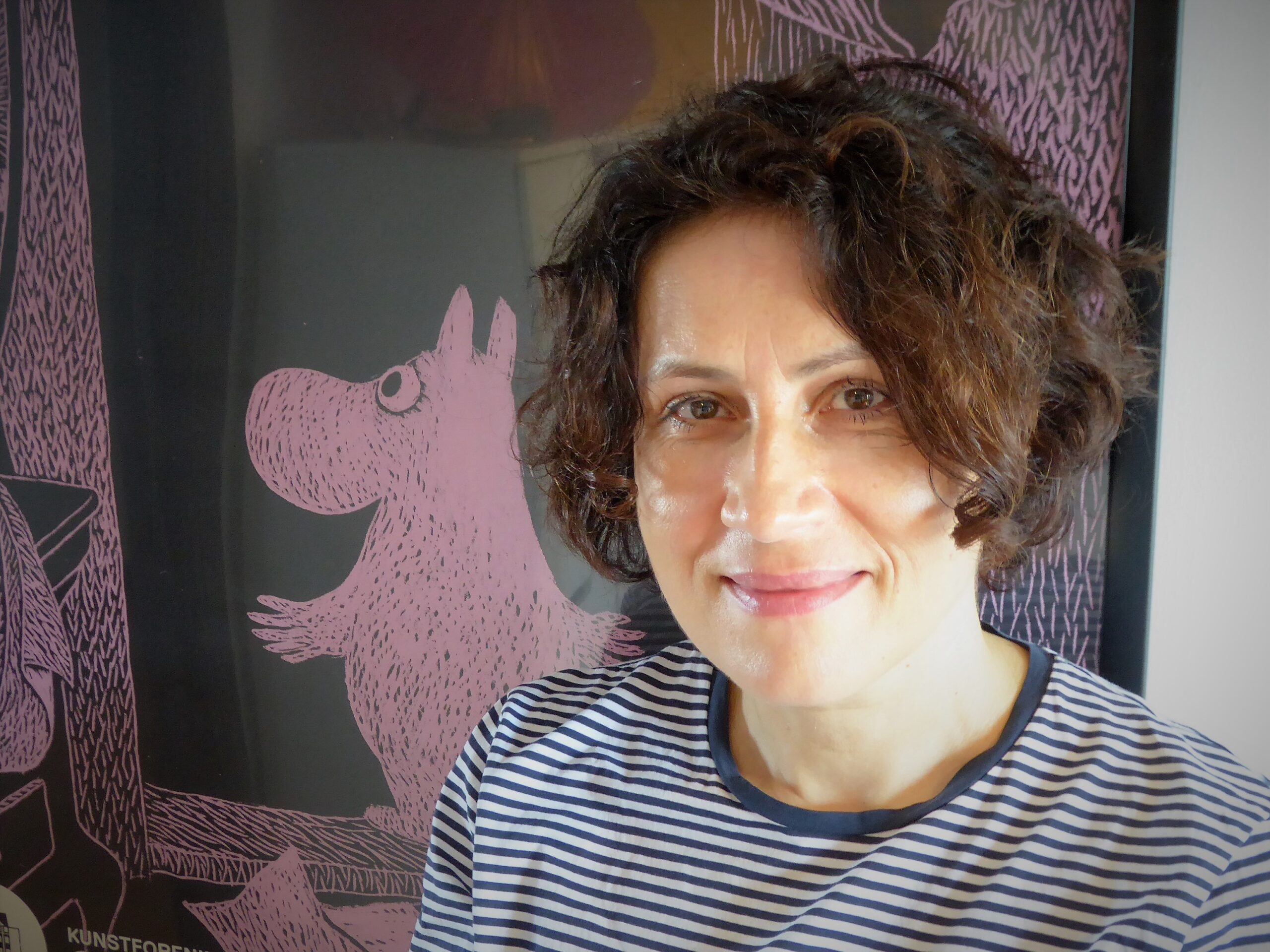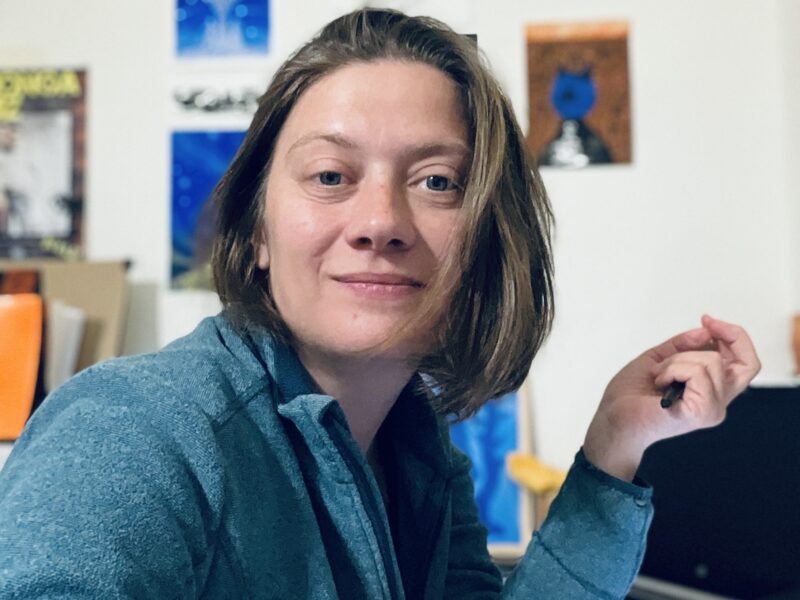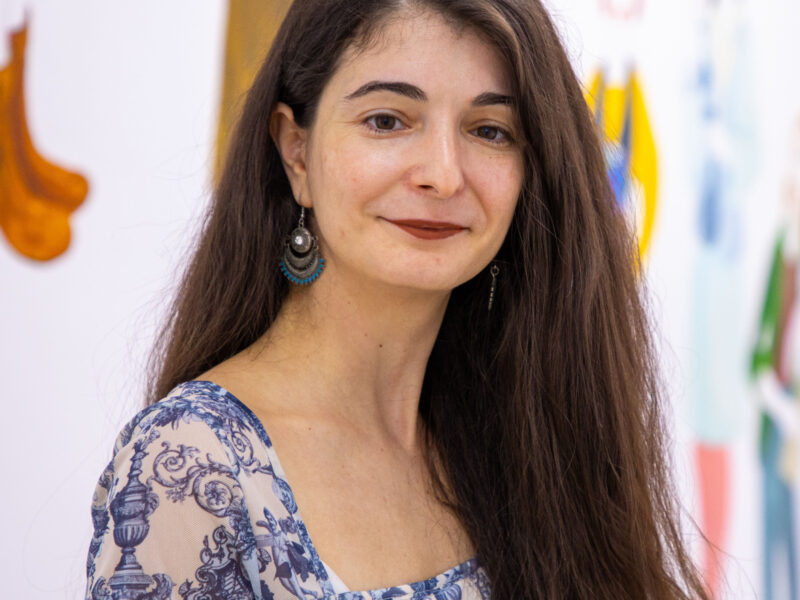Andreea Caleman is a translator from Swedish and English language. She translated books by Fredrik Backman, Tove Jansson, Astrid Lindgren, Selma Lagerlöf, Lois Lowry, Ellen Raskin, among others. Andreea is also a traveler, a passionate reader and an enthusiastic storyteller, vividly recommending the books she reads or translates.
What superpower would you like to have as a translator?
Being a copy-editor :)
But what about in general?
To heal. While flying. Because I’d like to be able to fly too. But practically speaking, it would be more useful to have the power of healing anything.
How did you begin to translate?
With a friend, two “stars” of the Swedish literature and an extraordinary editor who assured us we’re translating phenomenal. We still don’t believe him.
Do you remember a phrase, word or character that wouldn’t let itself translated?
I remember a whole book. The best and most difficult translating exercise so far – The Westing Game a vivid, fabulous mystery novel for 10-14 years old. The key of the enigma is based on some crosswords, the words coming from a patriotic pompous old American song. I had to practically rewrite it in Romanian so that there wouldn’t be an extra letter, a plural or a hyphen less, in order to match the clues. It’s still ringing in my head:
„Oh, beautiful for spacious skies,
For amber waves of grain..”
What’s the most successful one from a name equivalents point of view? What about curse words?
The names of the characters in the Horrid Henryseries. To help you understand: Nora Explora, Spaima-Păduchilor (Nitty Nora Bug Explorer), Gina Ghilotina (Boudicca Battle-Axe), Iza Ursuza (Sour Susan), Monalisa (Gorgeous Gurinder), Niță Bubiță (Pimply Paul). There are a couple of tens like those.
As for swear words, I would say “are lămâie-n cur” (he/she’s got lemon up his/her arse) is by far the winner.
After finishing the translation, the book goes to copy editing. How’s the collaboration process with the editors going? What’s the winning argument when text divergences appear?
The collaboration process with the copy editors is kind of a Justice League. All for one and one for all, fighting for a better world… pardon me, a better book. Conflicts may appear, of course, because sometimes everybody wants to be Batman and nobody Robin. I think the winning argument is the common sense – we negotiate, agree, draw the line and call it a day. There’s a need for mutual trust and communication. The copy editors are like jewelers with a magnifying glass and they polish thoroughly your translation until it glisters. They correct patiently the 50th „Uite-te!” or „Nu fii prost!” and all the expression clumsiness, and after that they praise you: “You translated awesomely!”
Translators rarely have the occasion to publicly thank the copy editors: Thank you very much!
Do you follow the route of the translated books after their publishing? Do you want to know how they’re welcomed by the public, how they sell?
I do want to know how they’re welcomed, of course – that’s usually pretty obvious from articles, posts and groups on social media, group chats and the number of reprints.
What are a translator’s expectations from a publishing house?
To offer an equitable payment, to meet the payment term stipulated in the contract, to have duration clauses no longer than 5 years, to agree with the translator the important modifications on the text, to put the translator’s name in a visible place on the title page and beside the respective books on the publishing house’s or online book shops’ sites.
What about a publishing house’s expectations from a translator?
I think you should ask publishing houses too, I think they have a lot to say. They surely expect us to be able to accurately estimate the work time needed and to meet our deadlines and send in a translation that is correct, coherent and adequate in relation to the original. Stuff like that…
I’m the head of the Backman fan club in my family. In my building and in my district too, but I wouldn’t cross my heart. And with all of that, I didn’t like Us against You as much as the rest. I found it too full of axioms, too written for Facebook posts material, after the Beartown. Have you had this kind of reactions after translating, in a relatively short period of time, so many of Fredrik Backman’s books?
Us against You is the second volume in a trilogy that starts with Beartown, it’s natural to follow the same recipe. But it can be read independently too, maybe that is why those who have already read the first volume get the feeling that there are too many universally valid truths and far-fetched comparisons. In this one he dissects the life of the Björnstad community, that ruined and hopeless everyday life, suffocated of violence. Furthermore, Backman makes us get closer to the characters over our comfort level. He wants at all costs us to accept his conclusions because they’re some damn hard truths which nobody wants to hear said out loud. So he repeats them until exhaustion. It’s a lot darker than the rest of his novels and it’s written during a very difficult time of Backman. He left the trilogy aside after Us against You , as a matter of fact, and in the meantime he wrote Anxious People , which won us back, didn’t it? He reintroduced there the humor and the readers sighed with relief. As long as we laugh, nothing seems completely lost forever.
The reactions at Backman’s novels were, naturally, both good and bad. He’s read by very many people, he didn’t let anybody indifferent, be it a good or bad reaction.
I recently finished Britt-Marie Was Here and for 3 or 4 days after I wanted to call “sweetheart” the ones who I would’ve called something else and sniff when something annoyed me. Did it ever happen to you to take over the character’s tics or reactions?
I don’t know why, but the only things that stick with me from translations are the curse words.
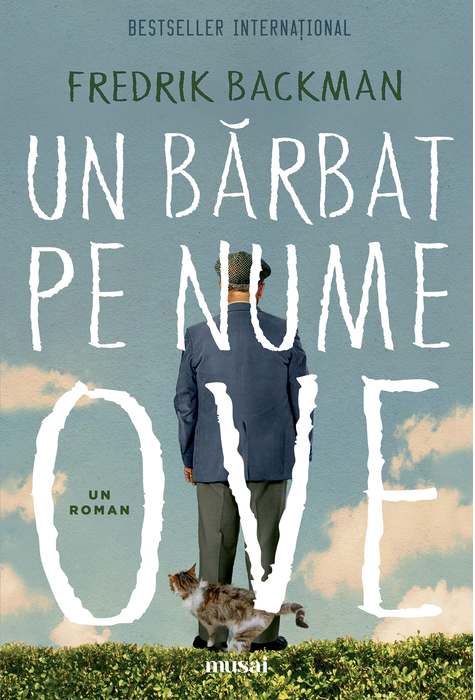
You said in an interview that when you read A Man Called Ove, finding yourself in Sweden at that moment, you could identify live the way the author had described a sacred place for the waggish cat hater. Does it matter for a translator to have contact with the author’s world?
Eh, I happened to be in a neighborhood very similar with the one of Ove’s and I went straight to see how the waste is sorted. That’s how I ended up sending the editor of the book very exciting pictures from Sweden… with the dumpster.
I don’t think the physical contact with the writer’s world is important. Good literature brings above all internal worlds, we just have to be able to… translate them.
I had an attempt to watch HBO’s series based on Beartown, but it didn’t convince me. I think that, by trying to adapt it for a different audience and form of expression, a lot got lost: the tension in the sentences of the book, those unbearable pauses after each short line, which say much more than they let on. How did you find the film adaptations of Backman’s books?
The short text that accompanies for a couple of seconds an image on a screen can’t compare to an extremely well written phrase on a quarter of a page. It will always be schematic. Films and TV series (or any other product) based on books usually start from successful stories, but the target audience is not the loyal reader of the respective books, and their purpose is not to sell the books, after all. Pippi Longstocking on a T-shirt won’t tell you anything about Astrid Lindgren’s writing either.
Adaptarea pentru TV a Beartown won’t be many’s favourite TV series. But urge your teenagers to watch it. Watch it with them! It says frankly things that still need to be heard repeatedly: put a stop to sexual aggressions, racism and homophobia by raising your children to be humans, not beasts. It’s not a waste of time in front of the TV. Peter Grönlund is a director expert in harsh social themes, the casting is composed of both professional and amateur actors, and those beautiful and frightening landscapes are filmed impeccably.
A Man Called Ove, with 2 Oscar nominations for a foreign film in 2017 would surely be everyone’s cup of tea. The remake with Tom Hanks in the main role should come out in 2022 and it will probably appeal even more to the public.
You’ve translated great names of children’s and YA literature – Selma Lagerlöf, Lois Lowry and Astrid Lindgren, among others. Is translating children’s literature any different from translating books for grown-ups? Does it require the activation of some kind of superpowers?
Speaking of Selma Lagerlöf – she’s a brilliant writer, but not of children’s literature. The Wonderful Adventures of Nils was a thick geography textbook, attractively written as a story, then shortened and sold as a children’s book.
For me, the process of translating is pretty much the same; it doesn’t matter if it’s a book for children or for adults. The difference is that the children's ones I read and re-read aloud – the orality is the ultimate test for me when talking about children’s books, it helps me “break” the phrases that are too heavy, use joyful words rather than academic synonyms. Children are being read to or read themselves aloud sometimes. Other times they read aloud in class. They read to each other comic and thrilling passages or they reenact them. Reading is very much a shared experience until the age of 10. It would be great if we could turn on “our inner child” when we translate children’s literature, but that’s just a yet again repeated platitude.
In which of these text categories do you feel more comfortable?
I feel comfortable translating any kind of prose, but at this moment I have a preference for children’s literature. I like the challenge of translating texts conceived to persuade adults that they’re extraordinary for children and children to read or listen them with interest, to make them laugh out loud and play. I’m glad I can help putting on the shelf that nobody reaches anymore the heads of the grinning goat kids (a reference to a Romanian folk tale) and the Grimm Brothers with their horror stories.
What’s the translated book or the author that’s the closest to you?
Tove Jansson.
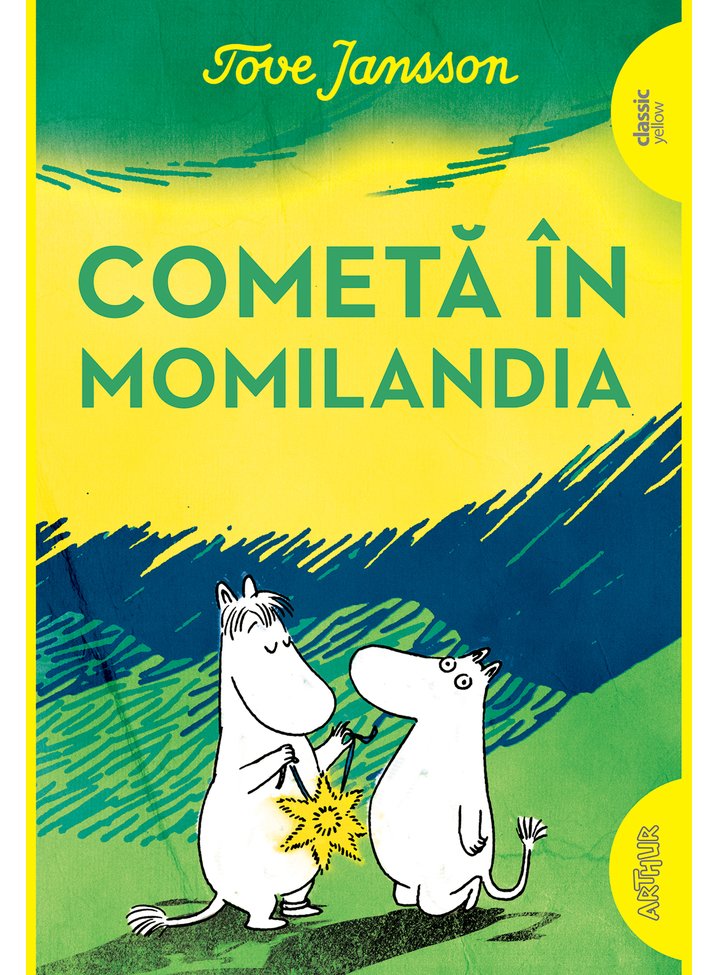
It seems that you enjoyed (very much) the majority of books you’ve translated. Could you translate books that you don’t like too? Does or would it make a difference in the translation process?
Of course I can translate books I don’t like; Nils Holgersson is, actually, an example. Like in any other job, you don’t do only things you like.
What would you recommend to a student interested in a translating career? What should they learn, what should they do?
Anyone can translate if they’re passionate and have a flair for language. There are exceptional translators that have finished atomic physics, psychology or chemistry.
I have only one piece of advice – not to accept to translate after translations. The outcome will be a 3rd hand job. And I would tell them it wouldn’t be a bad idea to make their own list of words. Sometimes I come across words that are mental, like “ghimizdoc”, “rătutit”, “moșmondit”, “maglavais”, “juvelnic” or “marțafoi”. I don’t necessarily need them at that moment, but I write them down. You never know when you need “civadieră” and that translation could appear faster than you think.
What colours are your socks when you don’t want to do things the way they’re boringly being done?
When things tend to be boring or even worse, to go crazy, green stripes on purple socks won’t help you. You have to make pancakes then, that helps. All my favourites characters manage to do with pancakes. Therefore, long live the pancakes!
And what book would you read with your head upside down and your feet on a pillow?
Any book with moomins by Tove Jansson. “Today I feel like doing something unusual!” I would say like Moominmamma and I would read for hours about Hemulens with long dresses, Hattifatteners, Niblings, the tumultuous youth of Moominpappa and the uselessness of all things in this world.

